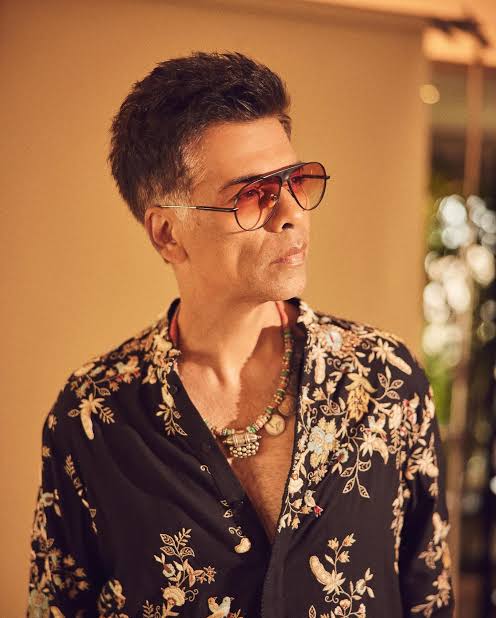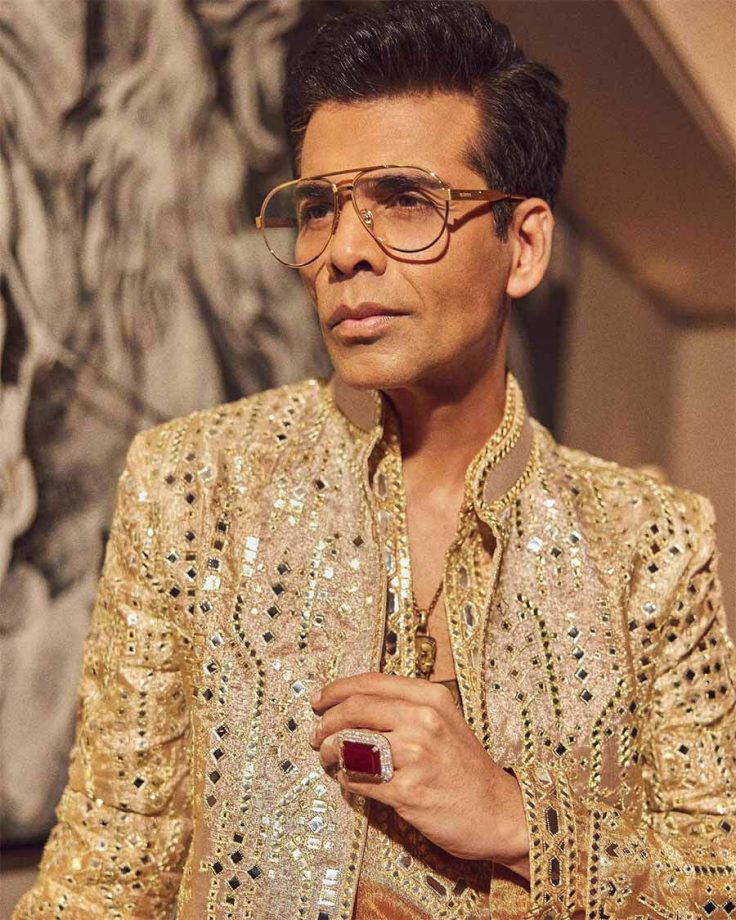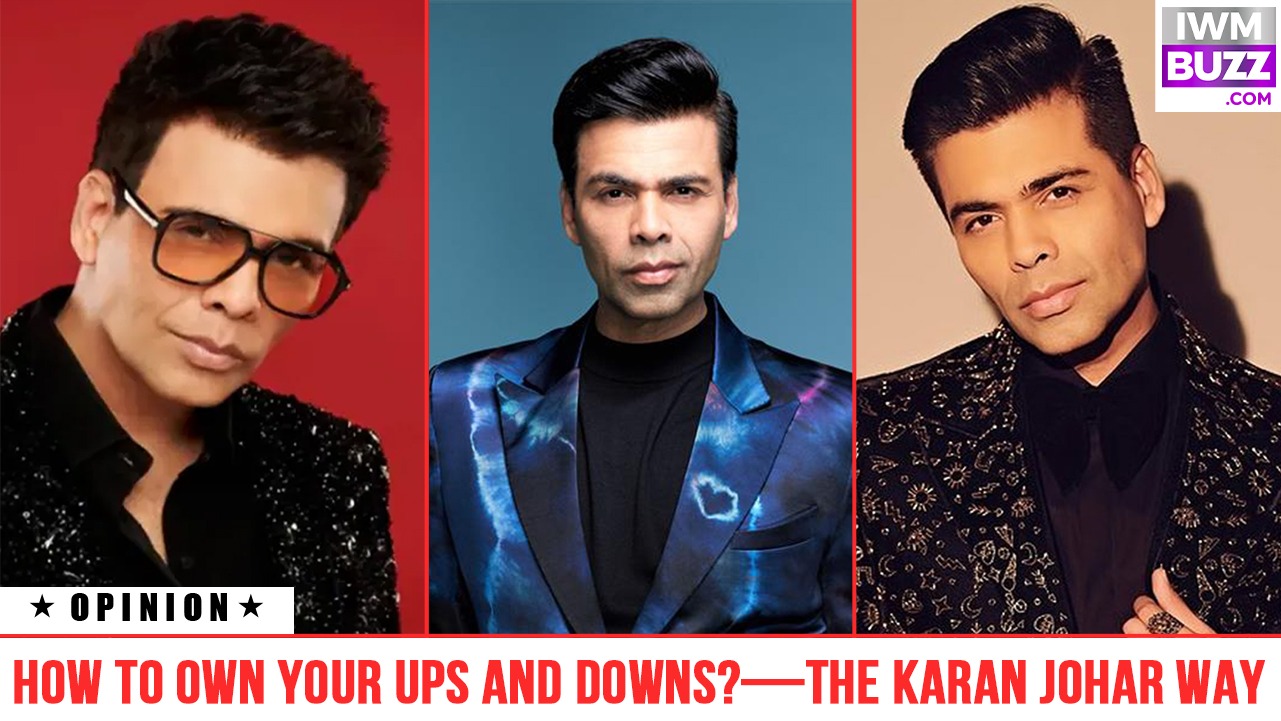Countless times, no matter what stance you are in, you have had a moment when the dusk has grasped you entirely. Back in September, we remember Karan Johar posting on his social media, saying “accept, adapt, move on,” followed by a myriad of lessons one can take away. Today, we all look up to Karan Johar, given how his movies have shaped our emotional quotient, shifting our perspective.
And he is back at it again, inspiring millions with his unfiltered version in a conversation with Sania Mirza. Spearheading films like Dhadak and Homebound, Karan Johar always makes you aware of the unspoken and unsung narratives on the screen and off the screen.
Age, Body Dysmorphia & More
Age and appearances all come with a blow, and Karan Johar’s mantra is to “adapt to your time.” In the era of social media, one is always under deep scrutiny all the time—Karan Johar, pointing it out, says, “It has become a double-edged sword. I always believe that you have to adapt to your time. But there is a dark, deep, ugly, and miserable part of social media: you are open to judgment from the entire universe. By the entire digital universe. So now, from people wanting to change their face, alter their weight, change their wardrobe, to worrying about every comment made. For people with low self-esteem and low morale issues, it’s the worst place to be. I mean, I know people are zooming in on your skin. They are zooming in on your body. They are zooming in; it’s terrible. It’s really godawful because you are defined at a very early, young age, by what’s written about you”

Adding on how adolescents are deeply worried about their bodies, and giving in to the diet culture, he said, “I know kids in college and school, not college. Let’s not go that far. 12 and 13-year-olds who have Instagram accounts are getting all kinds of anxiety about why they are low on followers, why they are not looking as hot. They are worried about how their bodies look at 12 and 13. When they go on trips abroad or to Goa, and whose bikini bod is better, and then– It’s wild. They are kids. When I was 12, when you were 12, we ate what the hell we wanted. You, of course, at a very young age, started getting very sporty and healthy. But for some of us who grew up in a normal environment, nobody looked at what we wore. -And nobody cared. I was a plus-size kid. I was an effeminate child. And I was allowed to still be happy. Today, I get worried about children who are different from the others. Either physically or in terms of their personality type, because kids can be ruthless. -They can be brutal. -Yeah, they’re tough. As can people, grown-ups can be, as well. So I feel terrible that kids of this age have to go through this. And it’s a toxic time. It’s an unfortunate time.”
The conversation soon took a turn towards body image issues and dysmorphia. Karan Johar spoke about how he had suffered body dysmorphia, and after he dedicated himself towards weight loss, he feels easier at 10% but not entirely. In his mind, he admits that he will always be a “plus-size kid” —who was teased for his weight at a very young age. Speaking of how aesthetics have always been crowned amid these debacles, Karan Johar admits he now feels more confident, given the weight that has gone off.

The conversation took a spin. But our EQ got stuck when Karan Johar brought in transparency about his single life. Continuing on his win of the national award, he said, “you feel the loneliest in your highs and not your lows. In your lows, you have your family, friends, parents and kids. I have two cousin sisters I am very close to, and I have my best friends. But in your highs, what do you do? I remember I got a call that I was getting a National Award. I hung up the call, and for one minute all I thought about was, ‘What do I do tonight? Whose house do I go to? Whose hand do I hold? A little pat on the back, I needed and wanted to feel happy.” —he continues to emphasise on the need for partnership in life. And that is where people who know what solitude is, and deal with it regularly understand right at its core, that how they struggle to dilute their loneliness each and every day. Karan Johar says, “loneliness does come in. Of course it does. It is a lonely life…loneliness has got to do with your state of being.” —a sincere learning that we all could take away with us for the day, and can always hope for the brighter Sun; if not—we can return to this conversation once again.
Have a glance here:

